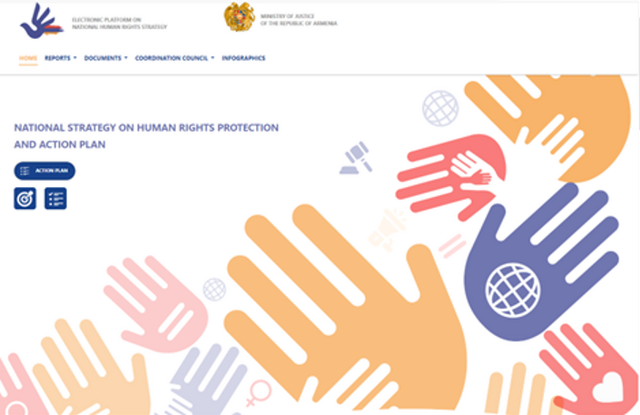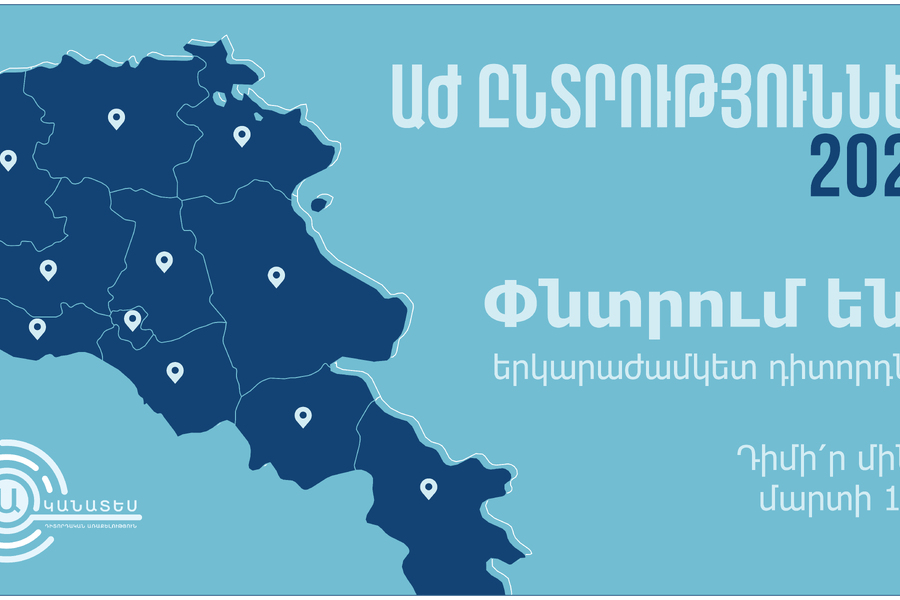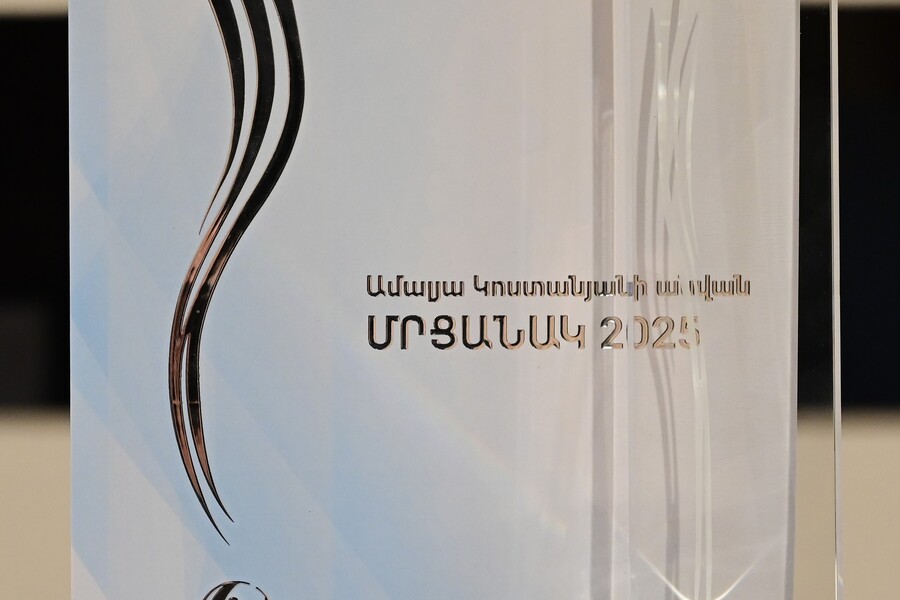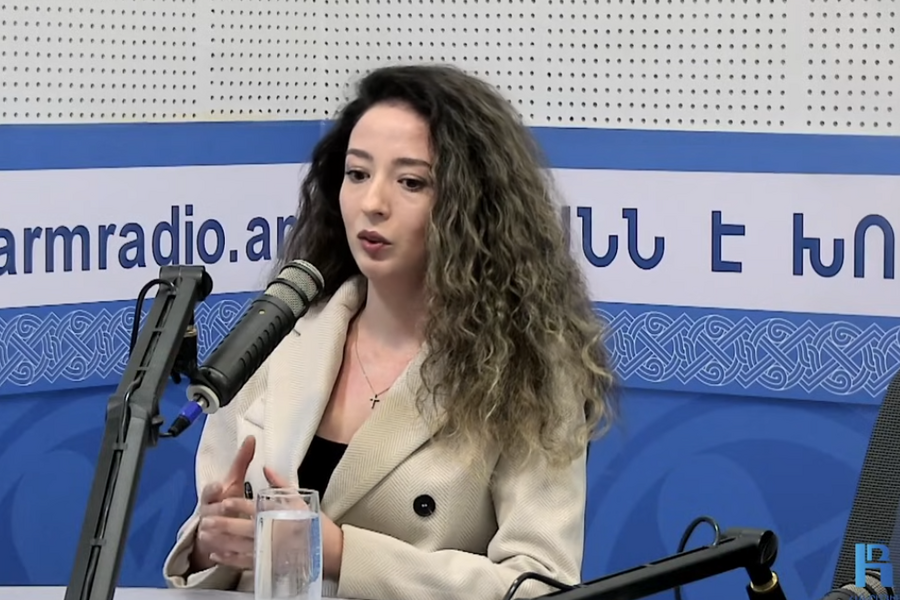Armenia Steps up Action on Human Rights in New Action Plan
On September 28, 2023, the Armenian Government approved the new Action Plan for 2023-2025 of the National Strategy on Human Rights Protection. This Strategy itself was adopted in December 2021 and provides an assessment of the human rights situation in Armenia. It outlines the principles, goals, priorities, monitoring and coordination, accountability and evaluation mechanisms of the Strategy. Among other issues, the Strategy covers a number of topics reflected in the CSO Meter, such as freedom of peaceful assembly, right to represent public interest in court, fight against hate speech, and anti-discrimination measures.
Representation of Public Interest in Court
For several years, CSOs have been advocating for the ability to appeal to the court on issues of public importance, taking into account the principle of “actio popularis”. These recommendations were captured also in the CSO Meter Armenia reports, and made their way into the Action Plan.
According to the current regulations, CSOs can represent public interest cases in court only on matters of environmental protection and disability rights, and only if the organisation applying to the court complies with a number of requirements. According to the CSO Meter report, these requirements are complicated and restrict the practical implementation of this right. For example, one CSO's lawsuit on an environmental matter was only accepted in 2022 after several years of struggle, thanks to the decision of the Court of Appeals.
The newly adopted Action plan proposes developing appropriate changes to the Criminal Procedure Code and Administrative Procedure Code by the end of 2024, as well as related laws, and submitting the draft amendments to the government for approval. As mentioned in the document, the proposed changes will result in facilitating the requirements for public organisations applying to the court for environmental protection as well as for rights of persons with disabilities.
Freedom of Peaceful Assembly
The police has a central role in ensuring the right to peaceful assembly. But very often in practice, the police does not only fail to properly fulfill their relevant duties, but it often even violates the rights of assembly participants and media representatives. What is even more problematic is that the criminal proceedings in connection with these gross violations of the rights of the assembly participants are often suspended or terminated, without bringing the culprits to justice.
The Action Plan plans on revising regulations on the policing of peaceful assemblies in Armenia, in particular the actions of the specialised units of the Ministry of Internal Affairs in relation to the maintenance of public order during assemblies. This will be accomplished by amending the Law "On Police" and Law “On troops of Police”, to make them compliant with international standards and human right principles․ In addition, it sets forth measures to raise awareness of the specialised divisions of the Ministry of Internal Affairs on the freedom of assembly and improve the assembly policing practices to ensure the protection of human rights.
Freedom of Expression
Another urgent problem the country faces are widespread cases of hate speech and numerous lawsuits related to insult and defamation. With increased digitalisation came also a high level of social polarisation in social networks, statements degrading human dignity, promoting hatred, and in some cases even inciting hostility against specific individuals and groups. The Criminal Code, which entered into force in July 2022, specifies that hatred, intolerance or hostility based on racial, national, ethnic or social origin, religion, political or other views or other personal or social circumstances, is an aggravating condition for a number of offences.
In addition to criminal responsibility measures, the Action Plan seeks to define administrative or civil measures of responsibility for milder manifestations of hate speech. Further, it includes a milestone on delineating the difference between hate speech and freedom of speech in the Law on Audiovisual Media, setting relevant indicators in accordance with international standards. This will help addressing hate speech in a more targeted manner, without putting freedom of expression under threat. In addition, the new Action Plan plans the implementation of awareness-raising campaigns addressing hate speech and promoting respect for the right to dissent and freedom of expression.
Anti-Discrimination and State Protection
According to the CSO Meter report, CSOs and activists engaged in human rights, environmental activism, and particularly those who work in the area of protecting LGBTQ+ persons, may face threats and harassment by third parties, and do not receive sufficient protection by law enforcement. According to human rights defenders, one of the problems is that the legislation does not specifically include sexual orientation and gender identity as a basis for additional protection. Moreover, there is a lack of specific and comprehensive legislation addressing equality and anti-discrimination issues. The draft law “On Ensuring Equality” has been discussed for many years and included anti-discrimination measures and the establishment of a Council of Equality aimed at ensuring protection from any type of discrimination. However, it was pending and not adopted yet despite the insistence of human right CSOs and government commitments within international agreements. The newly adopted Action Plan sets out a number of anti-discrimination measures, such as developing guidelines for the investigation of cases motivated by discrimination, hate speech and hate crimes, and plans amending and adopting the draft law “On Ensuring Equality” by 2024.
The Action Plan is a promising step towards protecting civic space and fundamental rights and showcases the importance of long-term advocacy.






